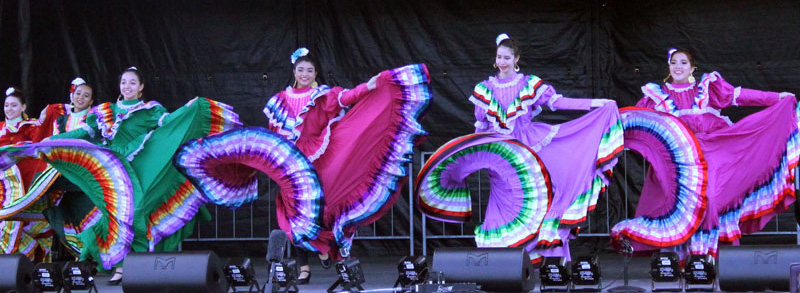WASHINGTON— A festival that allows youth — the “architects of our future” — an opportunity to appreciate and celebrate diverse cultures has come to D.C.
The 13th annual International Festival of Language and Culture features more than 100 student performers from around the globe.
Performers from such far-flung paces as Tanzania, Thailand, Ukraine, Tunisia and Albania joined Americans and other nationalities to open the event at the Ellipse on Sunday.
“It’s a beautiful representation of all of the world’s cultures being connected, but most importantly it showcases that we are all connected in some way,” said Jena Luedtke, director of interfaith and intercultural affairs at the Rumi Forum. “Everybody, I think, could connect with some performance, some song that was performed on stage.”
The competition has been hosted in over 20 capitals. Originally based in Turkey, the IFLC in Washington is primarily organized by two organizations: the Rumi Forum and the Turkic American Alliance.
[metaslider id=48407]
The Rumi Forum is a non-governmental organization, based in Washington, which advocates dialogue between differing religions and cultures. The Turkic American Alliance acts as an umbrella organization for many Turkic organizations in the United States.
Fethullah Gulen, a self-exiled Turkish Islamic scholar who now lives in rural Pennsylvania, founded the Hizmet (Service) Movement, most commonly known as the Gulen Movement. Members of the movement created the festival.
The event, however, does not specifically promote Gulen ideology, according to Mustafa Akeinar, IFLC spokesman.
“The general organizers are part of the Gulen movement, they started it, but it’s definitely beyond that,” Akeinar said. “It’s a huge festival celebrating the diversity, culture, and languages of humanity.”
On weekends, Ekrem Hamid Cetinkaya teaches students about Turkish music, history and Islam. The 19 year-old student at Christopher Newport University is also is a member of the Gulen Movement.
“Education is the key component for the future. You [should]
teach the [younger]
generation to be a good person, to not lie, cheat, steal, have honor and integrity. In the future that will pay off,” Cetinkaya said. “If they teach someone as well and [then]
they teach someone, it’s going to be like a chain which can spread. That’s what I was taught.”
Volunteer Serdar Tonbul, a 23-year-old student at the University of Maryland, said he has been on the staff of the past three mid-Atlantic regional finales, which have been based in Virginia.
“It’s a nice feeling to be a part of something that’s international, the songs they sing and the poems and the dances they do, they all resemble peace and coexistence, so that’s something I appreciate,” Tonbul said.

